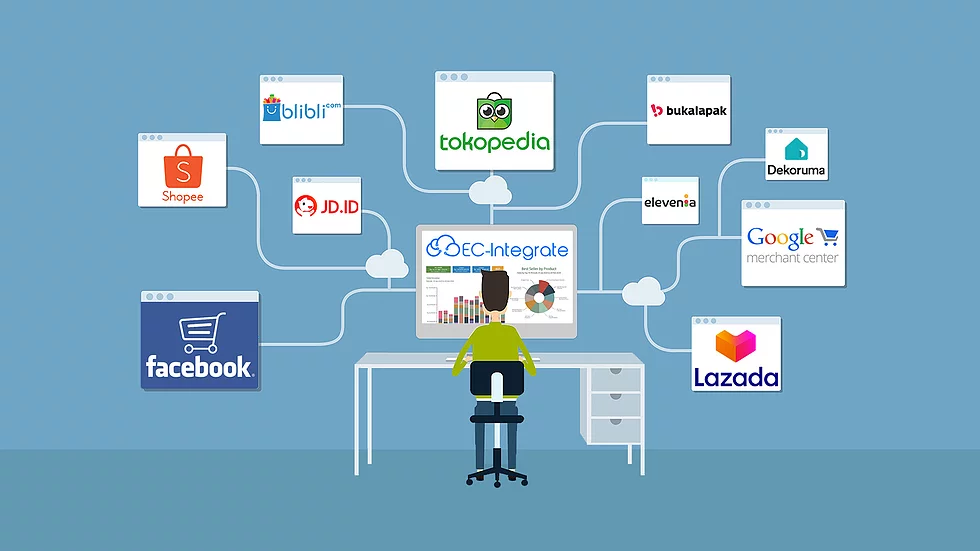How it works
membantu penjualan anda
lebih efisien
Satu dashboard yang memungkinkan Anda mengelola semua kanal penjualan
secara terpusat dan terintegrasi.

Features
Dari integrasi API sampai ke analisa,
memiliki semuanya.


Informasi Pesanan Terpusat
Memperbarui, mengelola, dan mengoptimalkan informasi pesanan secara otomatis dan terpusat dari semua marketplace yang terintegrasi. Saat Anda menerima pesanan dari marketplace yang terintegrasi, Anda dapat mengelola semuanya di satu modul manajemen

Data Inventaris Terpusat
Info stok dari semua saluran penjualan dapat dikelola dan dioptimalkan secara terpusat. Ketika terjadi transaksi penjualan, info stok di setiap saluran penjualan akan diperbarui secara otomatis. Dan pengelolaan akan terus dapat dilakukan secara terpusat hingga pengiriman.

Data Pelanggan Terpusat
Sebelumnya ada kekhawatiran tentang informasi pelanggan yang tidak dibagikan oleh marketplace. Tapi sekarang, karena semua informasi penjualan terpusat, masalah itu teratasi dan CRM dapat digunakan untuk mewujudkan perluasan penjualan.

Manajemen Produk Terpusat
Karena semua pembaruan di setiap marketplace dapat dilakukan sekaligus dari satu modul manajemen, menambahkan produk baru atau mengedit informasi produk di setiap pasar tidak memakan waktu lama. Mengelola atribut produk dan membuat produk bundling juga mudah
Feel free to contact us!
Write or chat with Our Customer Support
Or reach us through social media.
Let's Get Started
Get new Experience



